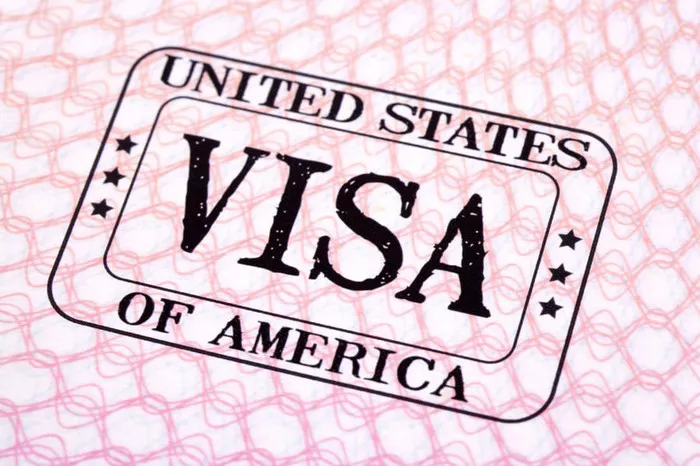As a permanent resident of a country, maintaining valid documentation is crucial. In the United States, one of the essential documents for permanent residents is the Permanent Resident Card, commonly known as a green card. However, like any official document, green cards have expiration dates, requiring renewal to ensure continued legal residency. Understanding the costs associated with renewing a permanent resident card is essential for individuals navigating the immigration process. This article provides a comprehensive overview of the expenses involved, including application fees, legal assistance costs, and potential additional expenses.
Application Fees
The primary cost associated with renewing a permanent resident card is the application fee. The United States Citizenship and Immigration Services (USCIS) is responsible for processing green card renewal applications and sets the fee structure. As of 2022, the standard fee for renewing a green card is $540. However, this fee is subject to change, so it’s essential to verify the current fee on the USCIS website or by contacting USCIS directly.
It’s worth noting that certain individuals may be eligible for a reduced fee or a fee waiver based on their financial circumstances. USCIS offers fee waivers for applicants who can demonstrate that they are unable to afford the application fee. To apply for a fee waiver, individuals must complete Form I-912, Request for Fee Waiver, and submit it along with their green card renewal application. Eligibility for a fee waiver is determined based on factors such as income level, household size, and financial hardship.
In addition to the standard application fee, there may be additional costs associated with certain circumstances. For example, if an individual’s green card has been lost, stolen, or damaged, they may need to pay an additional fee to replace it. As of 2022, the fee for replacing a green card is $455, in addition to the standard renewal fee. Similarly, if an individual needs to update their biometric information as part of the renewal process, there may be an additional biometric services fee, which is currently $85.
Legal Assistance Costs
While it is possible to complete the green card renewal process without legal assistance, many individuals choose to seek the help of immigration attorneys or accredited representatives. Legal assistance can be particularly beneficial for individuals facing complex situations or who are unsure about the renewal process.
The cost of legal assistance for renewing a permanent resident card can vary significantly depending on the complexity of the case and the attorney’s fees. Some attorneys may charge a flat fee for green card renewal services, while others may bill by the hour. On average, legal fees for green card renewal can range from a few hundred to several thousand dollars.
When considering whether to hire legal representation, it’s essential to research and compare the fees of different attorneys or firms. It’s also advisable to schedule consultations with prospective attorneys to discuss your case and get an estimate of the costs involved. Additionally, individuals should ensure that any attorney they hire is licensed to practice law and has experience handling immigration matters.
While legal assistance can add to the overall cost of renewing a green card, it can also provide peace of mind and ensure that the renewal process proceeds smoothly. Attorneys can help individuals navigate potential challenges, such as documenting eligibility for renewal or addressing any issues that may arise during USCIS review.
Additional Expenses
In addition to application fees and legal assistance costs, there may be other expenses associated with renewing a permanent resident card. These expenses can vary depending on individual circumstances and may include:
1. Travel Expenses: If an individual needs to attend an interview or biometrics appointment as part of the renewal process, they may incur travel expenses such as transportation and accommodation.
2. Document Translation: USCIS requires all documents not written in English to be accompanied by certified translations. Depending on the number and complexity of documents requiring translation, this can add to the overall cost of renewal.
3. Photographs: Applicants are required to submit passport-style photographs as part of their renewal application. While the cost of photographs is relatively low, it is still an additional expense to consider.
4. Mailing and Delivery Fees: Individuals may need to pay for postage or courier services to send their renewal application to USCIS and receive their new green card once it is approved.
5. Biometric Appointment Fees: As mentioned earlier, individuals may need to attend a biometrics appointment as part of the renewal process. While the cost of biometric services is included in the application fee for some applicants, others may need to pay an additional fee.
It’s essential for individuals renewing their permanent resident card to budget carefully and account for all potential expenses. Planning ahead and understanding the full cost of renewal can help avoid any financial surprises during the process.
Conclusion
Renewing a permanent resident card is an important step for maintaining legal residency status in the United States. While the process incurs certain costs, including application fees and potential legal assistance fees, it is an essential investment in ensuring continued legal status. By understanding the costs associated with green card renewal and planning accordingly, individuals can navigate the process with confidence and peace of mind. Additionally, exploring options for fee waivers or seeking pro bono legal assistance can help mitigate costs for those facing financial hardship. Ultimately, renewing a permanent resident card is an investment in one’s future and stability in the United States.


